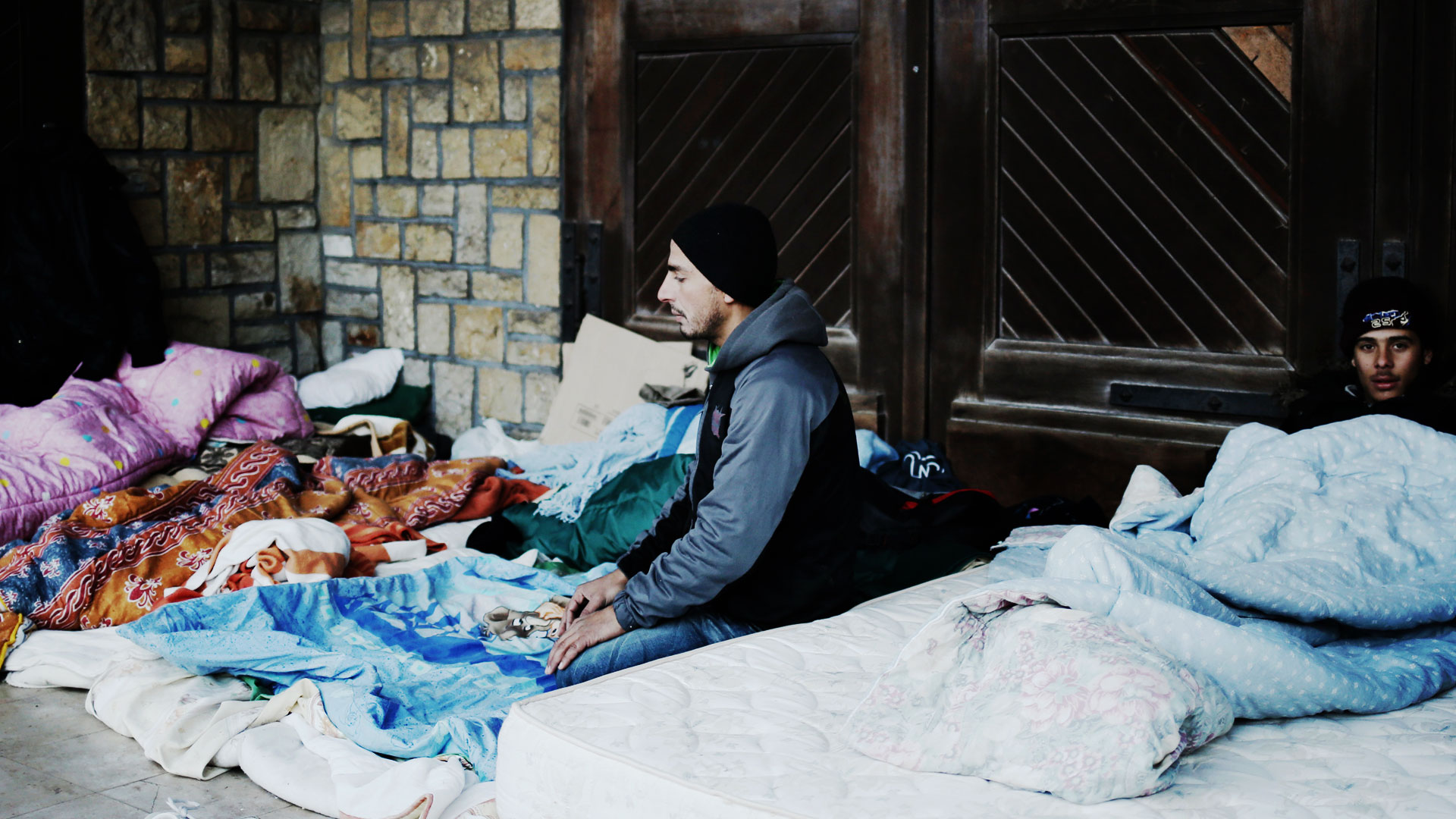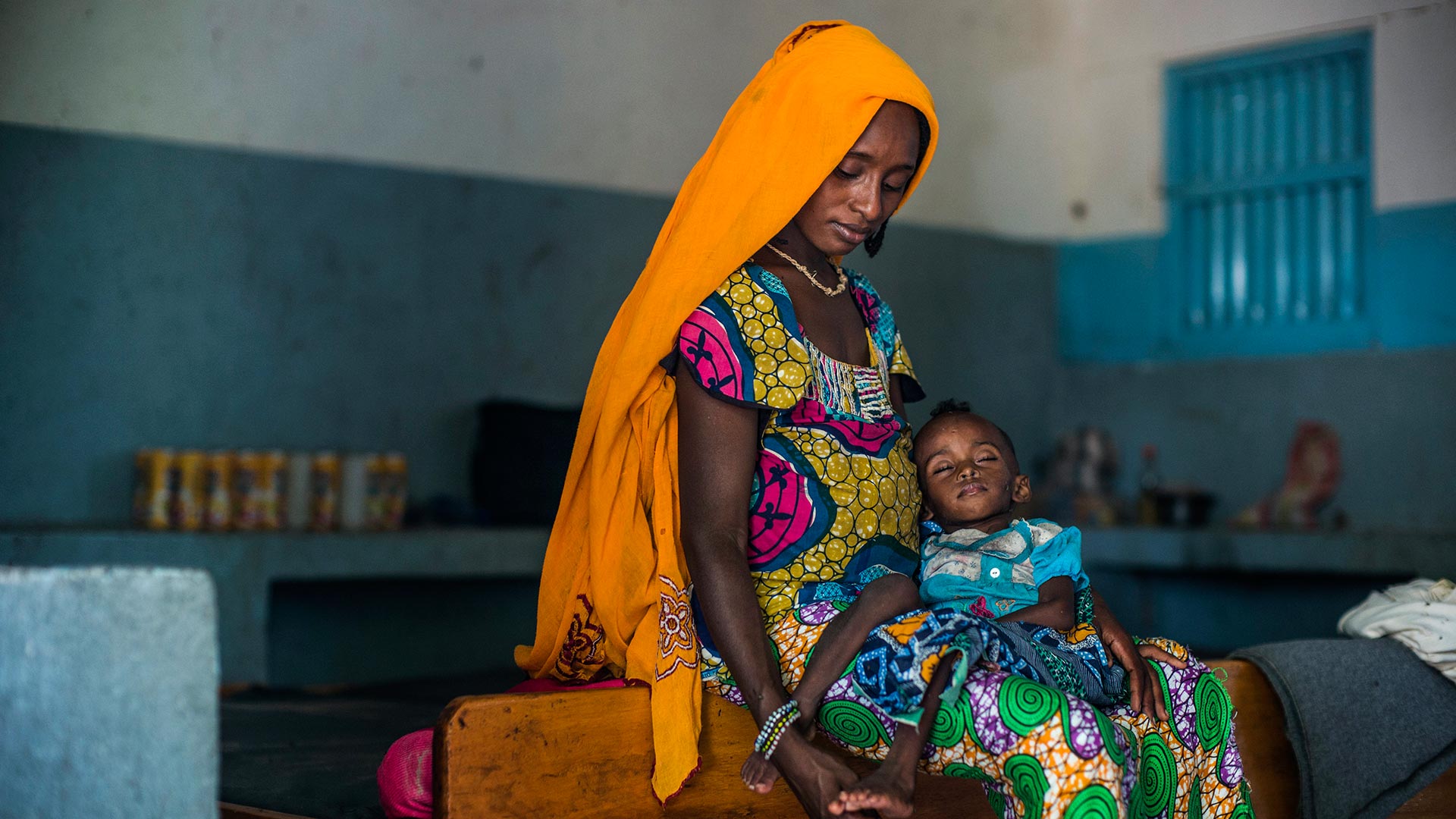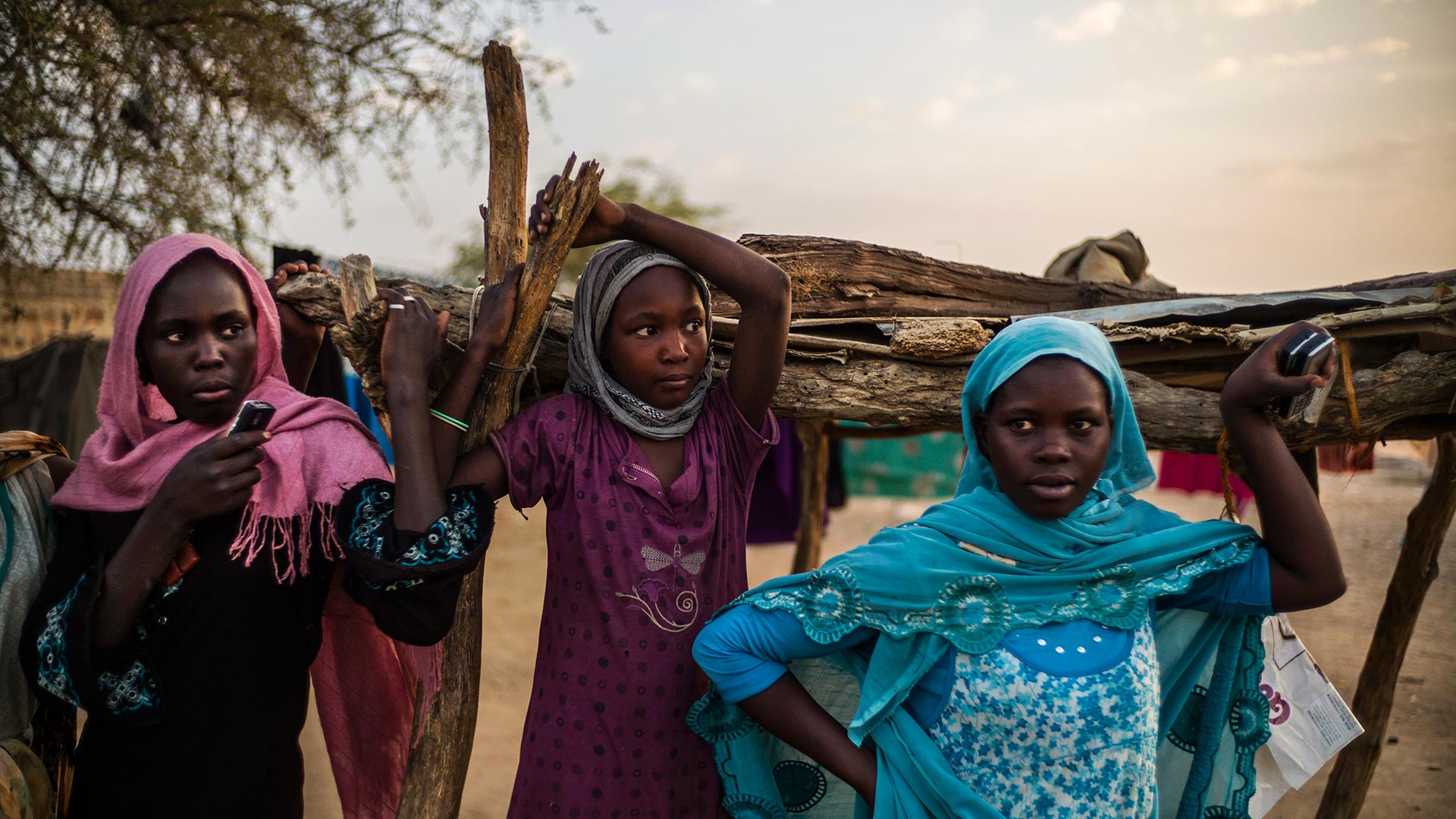More aid, protection for Darfur refugees amid sporadic arrivals in Chad
More aid, protection for Darfur refugees amid sporadic arrivals in Chad

BAHAI, Chad, July 9 (UNHCR) - As sporadic numbers continue crossing from Sudan's Darfur region into eastern Chad, the UN refugee agency is taking additional measures to improve assistance and protection for more than 170,000 Sudanese refugees, more than 70 percent of whom have so far been moved to inland camps.
Among the new arrivals are some 30 Sudanese in Bahai, north-eastern Chad. The three families - mostly women and children - arrived in the border town on Wednesday and settled by the river bed, or wadi.
They told UNHCR their village of Aboulia in Darfur was first attacked by three Antonov aircraft six months ago, then stormed by more than 100 members of the janjaweed militia on horses and camels. The militia shot at people, stole cattle and burned houses.
One woman said she witnessed the janjaweed raping girls in the village and kidnapping four of them aged from 12 to 17. About 50 families from the village escaped the village and walked for two days before reaching the mountain of Ambarou where they remained for three months, eating "mukhet", seeds they collected on trees and cooked. But the militia found them and attacked them again. The villagers walked for a day and a half before reaching another mountain where they remained for another three months.
"We left the mountain to come to Bahai because we have nothing else to eat," said Hawa Sabir, one of the new arrivals. "We heard that our brothers and sisters were here in Chad so we decided to come as well."
When asked if she was afraid that the many snakes and scorpions near the wadi in Bahai would hurt her children, she said, "Snakes are better than armed janjaweeds who want to shoot you."
UNHCR plans to start relocating these refugees away from Bahai to a new inland camp at Oure Cassoni on Monday. The UN Children's Fund and the International Rescue Committee are expected to complete a polio and measles vaccination in Bahai today, targeting children aged from five months to 15 years old. Vaccinations are also ongoing at nearby Cariari town.
The UN refugee agency has so far set up eight camps for more than 120,000 Sudanese refugees in eastern Chad. Most of them were transferred on UNHCR convoys from the insecure border area, while some arrived at the camps on their own.
In Touloum camp, UNHCR has initiated a refugee women's committee to give women a chance to express their needs and concerns, as very few of them are part of the official refugee structure in the camp.
"I was attending a refugee committee meeting some days ago and found myself surrounded by more than 100 refugee men and only five refugee women who did not dare to say a word," noted UNHCR protection officer Carolina del Campo. "With the women's committee, we hope that at least they can express their preoccupations so that we can try to answer their needs in a better way. After all, the camp is composed of 80 percent women and children."
Under the refugee women's committee, every block of 90 tents will get a female representative who will report problems faced by women in her camp area. UNHCR also hopes that the committee will encourage women to report any physical or sexual abuse in or outside the camp.
Meanwhile, a makeshift refugee site is growing spontaneously at Am Nabak, with hundreds of refugees arriving on rented trucks. They include 600 people from Tine and 300 from Am Dour. The site now hosts between 6,000 and 7,000 refugees who have turned down UNHCR's offer to transfer them to Mile camp because they say they want to stay near their relatives at Am Nabak.
The refugee agency and its partners are trucking in water, providing plastic sheeting and regular distribution of food to these refugees at Am Nabak.
To keep up with the aid distribution in camps and border areas, UNHCR will airlift nearly 180 tons of additional relief items from its stock in Denmark to Chad starting next week. These include more than 49,000 blankets, 10,000 pieces of plastic sheeting, 8,500 kitchen sets, 20,000 jerry cans, and four prefabricated warehouses. This series of airlifts is in addition to ongoing flights to bring in 16,100 tents from Pakistan. The refugee agency has airlifted more than 2,000 tons of supplies to Chad since the beginning of the year.
On the funding front, UNHCR has so far received nearly $27.8 million of the $55.8 million needed for its operations in Chad. Recent contributions include $8 million from the United States, $555,000 from the Netherlands, $121,803 from Luxembourg, and $636,943 from New Zealand.








